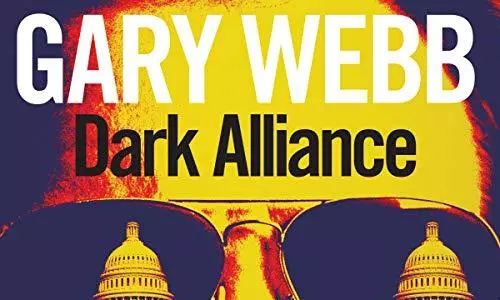
Remembering Gary Webb, the censured hero of 'Dark Alliance' on his 16th death anniversary
text_fieldsThe 10th December of 2020 marks the 16th death anniversary of Gary Webb, the most criticized American investigative journalist who committed suicide in his Carmichael home in 2004 with two gun shots on his head. International media reports say that the controversies over his three-part investigation series 'Dark Alliance' led him to the depth of depression and forced him to take his own life.
Gary Stephen Webb began his career by starting and shaping reputation over investigative writings. He had won several awards including Pulitzer Prize for beat reporting for the newspaper San Jose Mercury News in 1990. However, the world started looking at him through his exposures about links between cocaine trade, Nicaragua's contra rebels and African American neighbourhoods.
The whole book series named 'Dark Alliance: The Story behind the Crack Explosion' made a detailed investigation of the secret flow of drugs and money. It was published in the San Jose Mercury News in August 1996. The three-part series revealed the involvement of the Central Intelligence Agency (CIA) in the United State for contra-cocaine trafficking. The book claims that for helping to raise funds for efforts against Nicaraguan Sandinista government, the CIA supported cocaine trafficking into the United States by high officials of Nicaraguan contra rebel organization and thereby allowing to crack the epidemic in Los Angeles.
Even though the book unravels the secrets about the relation between drug dealers and CIA, the attention and acceptance getting to a less popular newspaper like San Jose Mercury News, was not completely digestible to mainstream legacy newspapers like The New York Times, The Washington Post and Los Angeles Times. Webb had to face backlash from media outlets. The Washington Post once wrote, "available information collected by Gary Webb does not support the conclusion that CIA backed contras". Los Angeles Times said, " 'Dark Alliance' is 'problematically sourced' and there are 'inconsistencies' in Webb's reporting".
'Dark Alliance' is one of the first major national security stories in history to blow online. At a time when Webb started receiving objections over his three-part investigation story, almost all the documents were digitally uploaded on the internet. Critics pointed out that Garry Webb's 'Dark Alliance' lacks accuracy and journalistic values. However, the series marked the beginning of investigative journalism from outside traditional mainstream media and promoted the internet world. They claimed that Webb had failed in bringing up extraordinary proofs to clarify his extraordinary claim.
In the meantime, the most controversial expose in American investigative journalism history was blown up with heavy flak. Gary Webb was said to have worked for more than one year to expose the groundbreaking three-part investigation. Cocaine crack abuse had devastated California's most vulnerable African American neighbourhood. The essence of the series spread over radio coverage and the internet world. More than one million readers had subscribed to the San Jose Mercury News website at that time.
Following the massive opposition from others on San Jose Mercury News for publishing 'Dark Alliance', the newspaper had to back away from Webb's scoop and transferred him to Cupertino bureau and did an internal review of his facts and methods. In 1989, a special subcommittee formed under senator John Kerry found "considerable evidence that the contract was linked to running drugs and guns and that the US government knew about it. The agency of the US government had information regarding the involvement".
Breaking the silence in 1998, CIA released a 400-page report acknowledging the agency associated with members of the contra movement who engaged in drug trafficking. Later, facing a lot of backlash and criticisms over his 'Dark Alliance' in 2004 December 10, seven years to the day he resigned from San Jose Mercury News, and Webb was found dead in his apartment. He was aged 49 when 38 calibre bullets flashed his head. Before his death at the time of controversy, Webb himself had refuted all allegations against his report.
Gary Webb once said, "You don't have to be The New York Times or The Washington Post to bust a national story anymore". Later in 2014, Micheal Cuesta directed the biopic of Gary Webb named 'Kill the Messenger' depicting Jeramy Renner as Gary Webb. The movie shows the story behind the Dark Alliance and paved a tribute to America's all-time investigative journalist. Critics say "Garry Webb's life and professional career is a lesson and cautionary warning for young reporters."






















